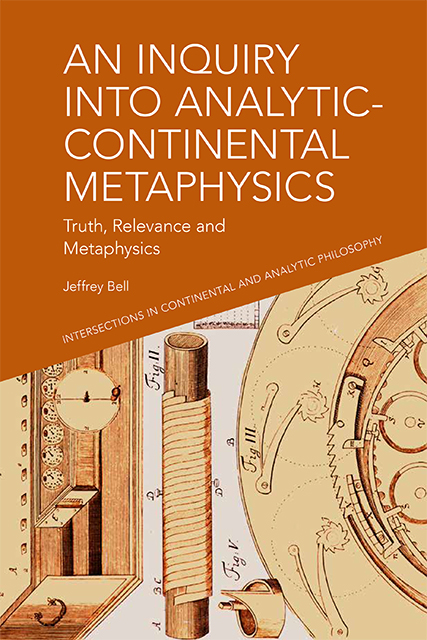Book contents
- Frontmatter
- List of Contents
- Acknowledgements
- Introduction
- §1 Problem of the New
- §2 Problem of Relations
- §3 Problem of Emergence
- §4 Problem of One and Many
- §5 Plato and the Third Man Argument
- §6 Bradley and the Problem of Relations
- §7 Moore, Russell and the Birth of Analytic Philosophy
- §8 Russell and Deleuze on Leibniz
- §9 On Problematic Fields
- §10 Kant and Problematic Ideas
- §11 Armstrong and Lewis on the Problem of One and Many
- 12 Determinables and Determinates
- 13 The Limits of Representational Thought
- 14 Learning from a Cup of Coffee
- 15 Carnap and the Fate of Metaphysics
- 16 Truth and Relevance
- Conclusion
- Bibliography
- Index
15 - Carnap and the Fate of Metaphysics
Published online by Cambridge University Press: 25 October 2023
- Frontmatter
- List of Contents
- Acknowledgements
- Introduction
- §1 Problem of the New
- §2 Problem of Relations
- §3 Problem of Emergence
- §4 Problem of One and Many
- §5 Plato and the Third Man Argument
- §6 Bradley and the Problem of Relations
- §7 Moore, Russell and the Birth of Analytic Philosophy
- §8 Russell and Deleuze on Leibniz
- §9 On Problematic Fields
- §10 Kant and Problematic Ideas
- §11 Armstrong and Lewis on the Problem of One and Many
- 12 Determinables and Determinates
- 13 The Limits of Representational Thought
- 14 Learning from a Cup of Coffee
- 15 Carnap and the Fate of Metaphysics
- 16 Truth and Relevance
- Conclusion
- Bibliography
- Index
Summary
1. Carnap's ‘Elimination of Metaphysics’
As has been noted before (Mares 2010, 53), the difference between the analytic and continental traditions in philosophy can pretty well be summed up by the titles of two books – The Logical Basis of Metaphysics (1991), by Michael Dummett, and Metaphysical Foundations of Logic (1928), by Martin Heidegger. Picking up where we left off with our earlier discussion of the differing approaches Heidegger and Carnap took to purifying the errors that seep into everyday language (§13.7), we can begin to explore this difference further. For Heidegger, the destiny of metaphysics has been the forgetting of Being, or the turning away from Being as the condition for the possibility of the presence of beings, for that which is determinately given to thought. The scientific and logical modes of thought presuppose, on Heidegger's view, the presencing of Being, or the ‘Nothing that nothings’. To base logic on the ‘Nothing that nothings’, however, is for Carnap to turn to the type of metaphysics he seeks to eliminate through logical analysis. As we highlighted in our earlier discussion, statements that cannot be logically constructed are for Carnap at best pseudo-statements. Logical constructions, moreover, must be founded on something determinate; to take Carnap's example, the word ‘teavy’ is a word where, ‘[i]f no criterion of application for [it] is stipulated, then nothing is asserted by the sentences in which it occurs, they are but pseudo-statements’ (Carnap 1996, 64). The same is true as well, as we saw earlier, for Heidegger's terms ‘Being’ or the ‘Nothing that nothings’. In particular, for Carnap, if a word is to have a meaning then it must be reducible to other words and sentences and ultimately ‘to the words which occur in the so-called “observation sentences” or “protocol sentences”. It is through this reduction that the word acquires its meaning’ (63).
- Type
- Chapter
- Information
- An Inquiry into Analytic-Continental MetaphysicsTruth, Relevance and Metaphysics, pp. 160 - 191Publisher: Edinburgh University PressPrint publication year: 2022

